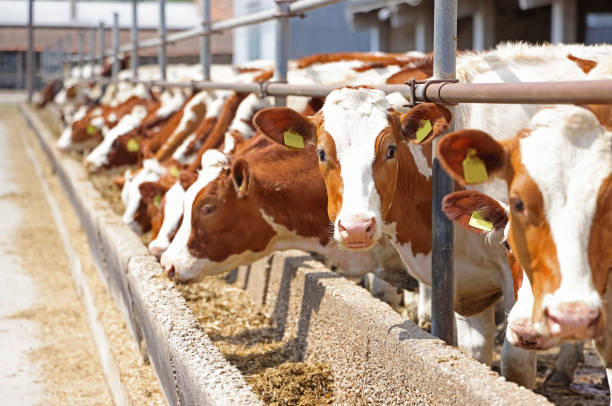Animal Production Department is one of earliest Departments with Fisheries Technology that were established in 1986 in the School of Agriculture and Agricultural Technology. The Department housed Food Science and Nutrition which has become a full Department named Food Science and Technology (FST). The Department has graduated many students both in Animal Production and Food Science and Nutrition options.
The department has mandate to:
raise the creative capacities and capabilities of students and staff, through appropriate learning skills which will enable them to produce Animals/products for the nation and also be job creators rather than job seekers.
provide academic and professional programmes that award diploma and degrees in Animal Production with the aim of producing socially matured men and women who would fully grasp, use and adapt existing technology, as well as improve on it and develop new ones.
conduct basic and applied research, especially into local field problems, the development and acquisition of appropriate skills, consultancy and general services to the public among others.

Vision
The vision of the Department of Animal Production is to make the Department a centre of excellence in animal production through high quality service delivery.
Mission
The mission of the Department is to prepare high quality graduates and postgraduates who are job creators that have up-to-date scientific knowledge and the technological skills to research on current advances in all areas of animal production and to disseminate such for advancement and development at community, national and international levels.
The main difference between monogastric and ruminant digestive system is that the digestion in the monogastric digestive system mainly occurs in the stomach whereas the digestion in the ruminant digestive system is a foregut fermenter type digestion
Animal breeding is a branch of animal science that addresses the evaluation of genetic value in terms of estimated breeding value (EBV) of domestic livestock. Animals have been selected for breeding with superior EBVs in growth rate, and egg, meat, milk, or wool production, as well as other important desirable traits
Email: tsadonma@futminna.edu.ng
Prof. D.N. Tsado was born in Doko, Lavun Local Government Area of Niger State. He started his educational career at St. Peter’s Primary School/ Langbafu Primary School between 1966-1975. He attended Government Teachers’ College, Mokwa between 1975-1980. Prof. Tsado was at the Niger State College of Education, Minna between 1981 to 1984 for his NCE certificate and obtained his B.Sc. (Agric.Bus.Edu) in Tuskegee University in Alabama United State of America (USA) in 1990. He later obtained his Master’s degree in Animal Production in the year 2000 and his PhD degree in Ruminant Animal Production in 2010 from Federal University of Technology, Minna. He became a Professor of Ruminant Animal Production in 2018 and is currently the Head of Department Animal Production, Federal University of Technology, Minna. Prof. Tsado is married to Mrs. Martha N. Tsado and the marriage is blessed with three children.